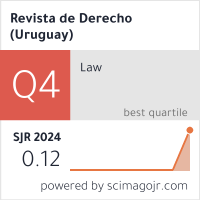Análisis del fallo "BG Group PLC V. Republic of Argentina" dictado por la corte suprema de los Estados Unidos de América
¿todos los caminos conducen a Roma?
Keywords:
International commercial arbitration, Investment arbitration, International treaty, Iinternational law, Transnational lawAbstract
The present essay aims to analyze the decision rendered by Supreme Court of the United States of America, on 5 March 2014, in re BG Group plc v. Republic of Argentina, whereby Argentina was ordered to pay the British company BG Group the amount of US$ 185,3 millon in damages as a result of Argentina’s decision to impose a freeze on gas price in 2002. This essay discusses the merits of such a decision focusing, in particular, on the fact that basic norms concerning general international law and, more specifically, the law of treaties, have not been taken into account in reaching a decision on a matter involving an investment arbitration provided for in a bilateral investment treaty. Furthermore, it seems that extremely different legal institutions, such as international contracts (in the case at hand, an internantional arbitration agreement) and international treaties have been merged into one thing by asserting that they stand on an equal footing, while in fact they are diametrically opposed.
Downloads
References
Gaillard, Emmanuel. L’ordre juridique arbitral: réalité, utilité et spécificité. Conférence commémorative John E. C. Brierley. McGill Law Journal, vol. 55, 2010, p. 892-907.
Hanotiau, Bernard, L’arbitrabilité et la favour arbitrandum: un réexamen. Journal de droit international, n. 4, oct.-dez. 1994, p. 899-966.
Mazzuoli, Valerio de Oliveira. Direito dos tratados. 2. ed. rev., atual. e ampl. Rio de Janeiro: Forense, 2014.
Schreuer, Christoph. Consent to arbitration (Cap. 21). In: Muchlinski, Peter; Ortino, Federico & Schreuer, Christoph (eds.). The Oxford Handbook of International Investment Law. Oxford: Oxford University Press, 2008, p. 830-867.


















 This work is under a
This work is under a 